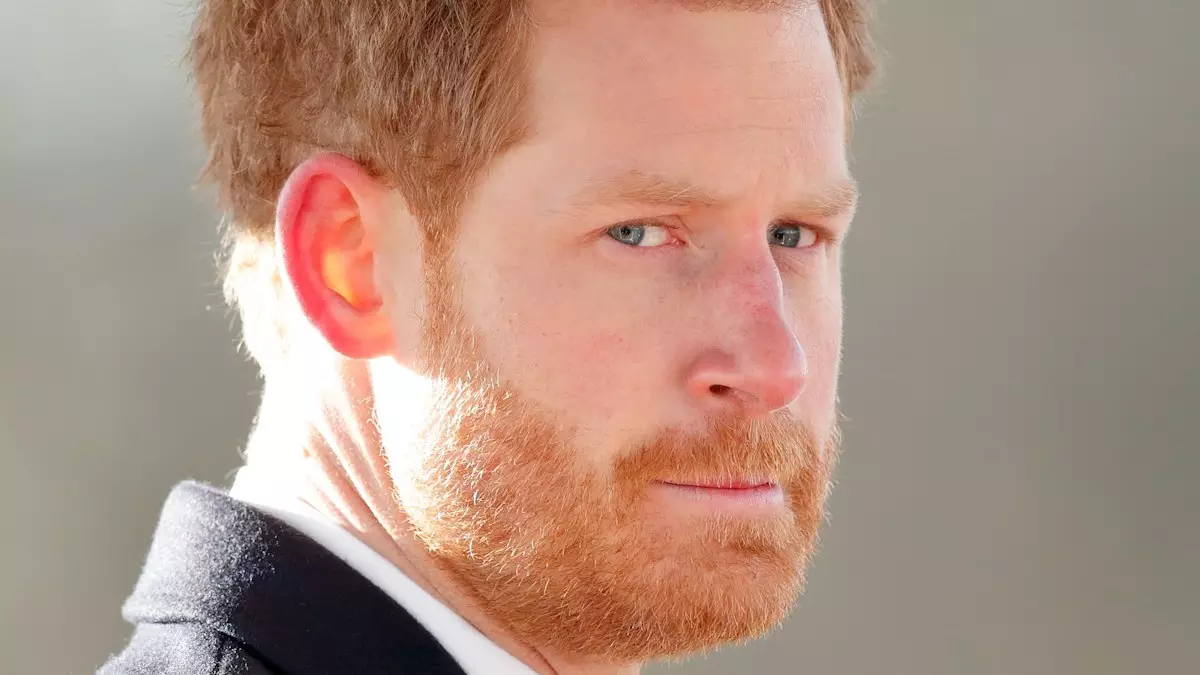In recent weeks, Prince Harry has become a focal point in the ongoing discourse surrounding media ethics and accountability, particularly in light of the trial against Rupert Murdoch’s News Group Newspapers (NGN). The Duke of Sussex, who has taken a firm stance against tabloid misconduct, has accused the publisher of engaging in unlawful information gathering practices, a claim that has significant implications for privacy and journalistic integrity in the UK. As this legal battle unfolds, it highlights not only Harry’s personal journey but also broader issues about the relationship between the media and public trust.
The anticipation surrounding Harry’s involvement in the NGN trial has oscillated, particularly with the news that he will not be present for the opening day. Initially suggesting he might attend, sources now indicate he will only testify later in February, a strategic decision likely rooted in legal counsel advice rather than personal choice. This change has reignited debate over Harry’s interactions with the British media and his shifting role within royal circles. His absence on the first day is striking, given the high-profile nature of the proceedings, which include allegations of phone tapping and other privacy invasions by tabloids that have consistently scrutinized Harry and his family.
The fact that Harry’s trial is set against a backdrop of similar claims from other celebrities, who opted for settlements, further emphasizes the challenges he faces. High-profile figures like Hugh Grant and Sienna Miller have chosen to step back from court battles, seeking to avoid the financial risks that accompany lengthy litigation. Their experiences contrast sharply with Harry’s resolve, which signifies a deeper motivation that goes beyond personal grievances—it embodies a critical stance against what he characterizes as systemic media malpractice.
Harry’s pursuit of justice is particularly notable against the backdrop of his past experiences with the media, which have tainted not only his reputation but also his mental health. During his recent participation in The New York Times’ DealBook Summit, Harry articulated his commitment to accountability, asserting that the integrity of journalism must be preserved amidst the misconduct of a few. His statement, “I will be damned if those journalists are going to ruin journalism for everyone,” highlights the belief that the actions of a minority should not diminish the collective responsibility of the media to the public. This perspective adds an ethical dimension to his legal battle, placing it firmly within the realm of public interest.
However, Harry’s fight is complicated by personal circumstances, including his strained relationship with the royal family. His ongoing disputes with the British government regarding security provisions since stepping back from royal duties in 2020 have further fueled public speculation about his intentions and motivations. While he continues to advocate for accountability in the press, his legal struggles also reflect vulnerabilities associated with his royal lineage, exacerbated by the loss of taxpayer-funded security as a direct consequence of leaving his royal role.
At the heart of Harry’s quest is a profound concern for the erosion of public trust in the media. In an era where misinformation and sensationalism often dominate headlines, Harry’s stance serves as a powerful reminder of the need for accountability within the journalism community. The contrast between his active litigation and the quieter retreats of other celebrities underscores a critical juncture in which the media’s responsibility to society is being questioned more than ever.
As Prince Harry prepares for his day in court, his narrative has broader implications for how media entities are held accountable for unethical actions. The outcomes of such cases could influence future standards of conduct within the journalism field, potentially reshaping how celebrities, and individuals alike, interact with the media landscape. The ripple effects of this trial may extend beyond Harry’s personal experiences, prompting discussions around media reform and the protection of individual privacy rights.
Ultimately, Prince Harry’s legal battle against NGN is not merely a personal vendetta; it has evolved into a compelling case advocating for ethical journalism and media accountability. By choosing to confront powerful media institutions, Harry is not just seeking redress for himself but is potentially voicing the frustrations of many who have felt victimized by invasive tabloid practices. As he takes the stand, the proceedings may serve as a pivotal moment for both the Duke and the future of responsible journalism in the UK. The outcome may redefine relationships between the press, public figures, and citizens, and importantly, it shines a light on the critical need for maintaining trust in journalism as an essential pillar of democracy.

